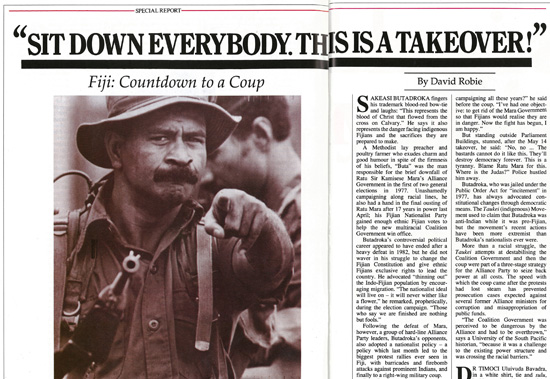By David Robie
Alongside normative definitions of the Fourth Estate as an independent watchdog on political power, in the South Pacific there is also a notion of a “fifth estate”, an Indigenous traditional cultural pillar, which is a counterbalance to all other forms of power, including the news media.
This is especially so of Fiji in the wake of four coups, or five if the 2009 Easter constitutional putsch is counted as a separate coup.
This paper explores traditional chiefly political power, the Taukei ethno-nationalist movement and the dilemmas of cross-cultural reporting with a particular reference to the expected return to democracy in Fiji with a general election due in September 2014 after a quarter-century of coup cycles.
It also argues for a tanoa model incorporating culture as part of a philosophy of talanoa, or a more nuanced, reflexive approach to journalism in the Pacific based on a flexible and open form of communication, dialogue and negotiation.
The paper draws on the author’s experience as both a journalist and media educator for almost three decades in the region.
- Robie, David (2013). The talanoa and the tribal paradigm: Reflections on cross-cultural reporting in the Pacific. Australian Journalism Review, 35(1), 43-58.
- Full text available at Informit: DOI: 10.3316/informit.505272837623485
- Download at Academia.edu


